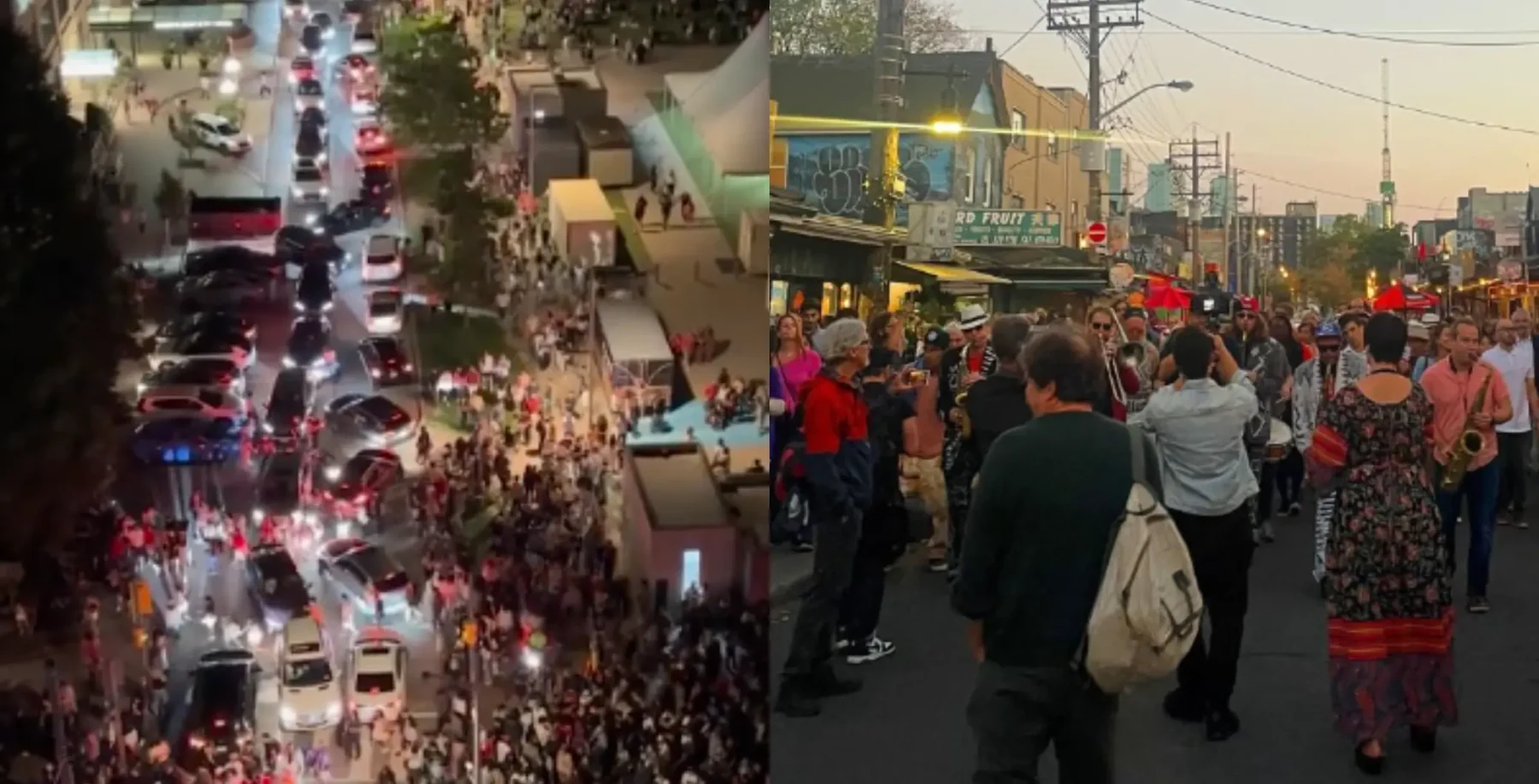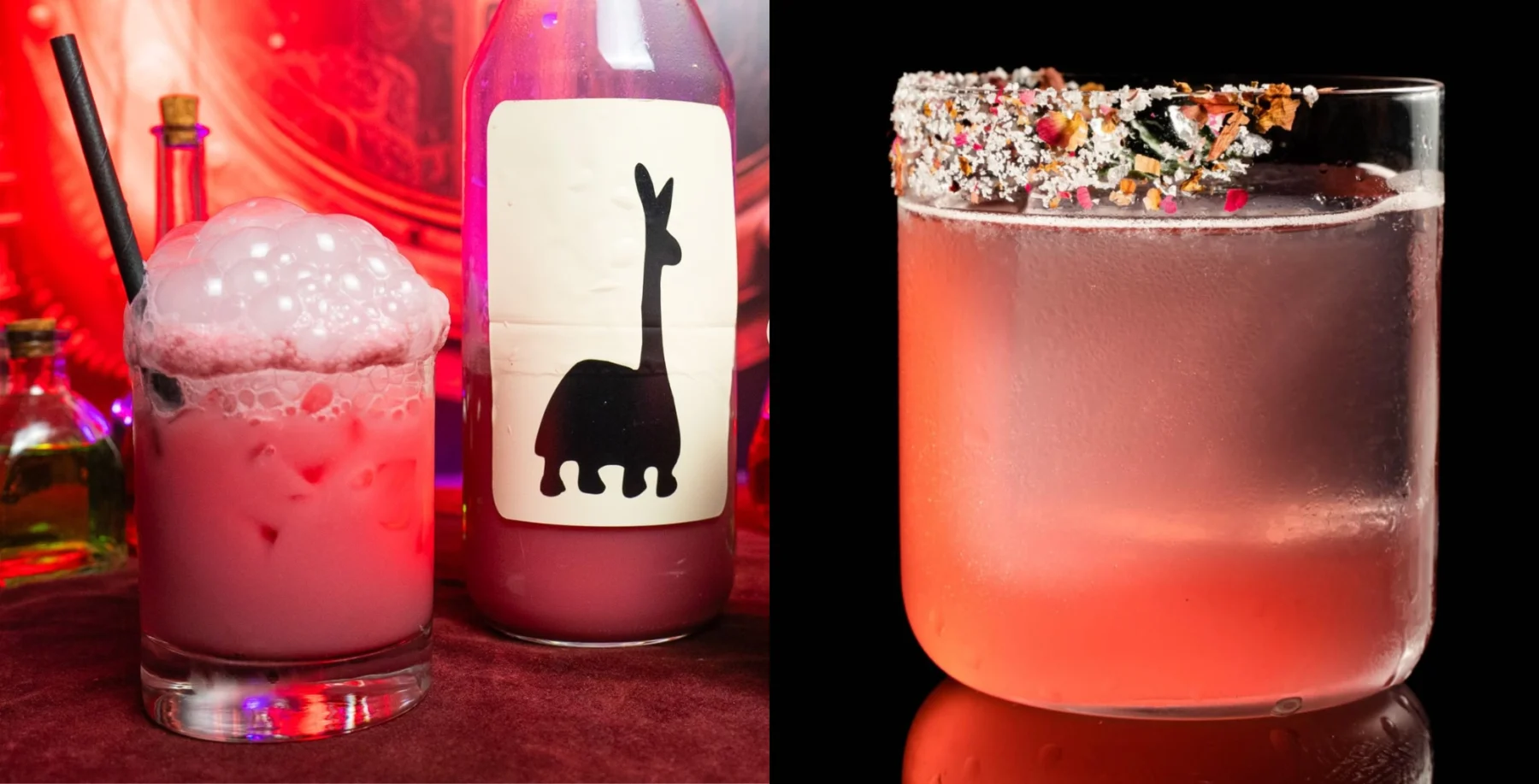
Rating: NNNNN
the airwaves have never been the same since FLOW 93.5 hit the ether on February 9. As the station flicked on its signal in those heady days, the black community rejoiced that there was at last a chance to diversify Ontario’s pasty, bland airwaves. But now, six months into the broadcast schedule, it’s time to ask some difficult questions about the station’s mandate and mission. Specifically, Denham Jolly, the head honcho at Milestone (FLOW’s parent company) needs to make up his mind whether he’s catering to the city’s large black population or to a whiter, er… wider, less defined “urban” community.
The latter is definitely not what I had in mind when I wrote letters asking the CRTC to give the black community a chance on the dial. The battle back then was about a channel that would represent African Canadians, and Jolly talked about programming that was multi-dimensional and educational. Now he seems to be singing a distinctly different tune, and we’re all hoping he didn’t kick and cajole the CRTC for the last 12 years for our right to hear overexposed U.S. rappers like Ja Rule all day long.
Here, in a rating system (see below) inspired by local rap great Kardinal Offishall, is my take on where FLOW flubs and where it scores.
SPOKEN WORD
News junkies who were hoping to hear different (read black and brown) points of view on hot issues of the day are still jonesing like potheads in Parkdale looking for that good stuff. Supporters of the station assumed FLOW’s public affairs objective was to cater to the political will of the black community, but the station’s signature talk shows do their darnedest to avoid any discourse on any heated race-related topics.
The flagship weekday morning talk show, The Chat Room, hosted by Jemini and Jonathan Shaw, has been bogged down too often in the local dating scene and other thought-provoking topics like “What is your dream job?’ All the time spent giving out relationship tips might be better utilized figuring out how to fix the fiscally challenged Caribbean Cultural Committee or dissecting the recent dissolution of the OAU (Organization of African Unity).
The daily on-the-fly news updates by reporters Nathan Downer and Mark Strong, Indira Tarachandra and Spiria Fearon are cookie-cutter, supplied by the Toronto Star, while Jemini’s Entertainment’s info bites are usually accessible via urban culture news wire services. The 20-minute weekend News And Views forum (Saturday, 9-9:20 am) hosted by Fearon and Tarachandra is supposed to discuss news from the Caribbean and Africa but is given the same news wire treatment. For a seven-day programming schedule, that just doesn’t cut it.
Voices, hosted by Donna Holgate (Sunday, 8-9 pm), gets a thumbs-up because she at least has the savvy to give callers room to breathe when they’re voicing their opinions on hot topics. Too bad the program is stuck in a time slot when nobody’s around or alert.
No one’s sure who set this barely audible spoken-word agenda. Could it be African-American import program director Michelle Price, who hopes repeated spins of hiphop and R&B all day will attract more listeners than reports on race relations? For the record, Milestone spokesperson Nicole Jolly wants to make clear that the music mix is tested here, and not in the U.S. “This is what our Canadian listeners want to hear,” she insists.
Or perhaps it’s the Standard Broadcasting Corp. (owner of almost 30 per cent of the voting shares at FLOW) that doesn’t want to touch any hot black community issues with a 50-foot pole.
Not so, says Nicole Jolly. “Standard Broadcasting doesn’t have any editorial control.’ She says the station attempts in its two-minute news reports to “cover as many topics as possible and also fit in weather and sports. And in our News And Views show on Saturday we do feature some news from the Caribbean and Africa.”
Not good enough, I’m afraid.
Postscript: FLOW desperately needs to hire seasoned radio news programmers to manage or host the weekday morning talk-show blocks. Or to bring knowledgeable beat reporters onboard. (Pride, Share, the Caribbean Camera newspapers or CHIN, CHRY, CIUT, and CKLN are a good resource.) FLOW’s market research says the 18-to-30-something demographic they’re targeting has all the cash to spend on advertised goods, but more experienced radio vets like CKLN’s Norman Otis Richmond have the cojones to make FLOW’s news programming more credible. GRADE: D+
MUSIC MIX
Enlisting some of Toronto’s finest club DJs (Starting from Scratch, Dr. Jay de Soca Prince, Spex from King Turbo) to host and spin platters was a brilliant move. The downside is that the prime-time weekday playlists are too restricted to populist blends of top-20 urban hits by already overexposed artists like R.Kelly, Destiny’s Child and Nelly.
The debate begins with Milestone’s relentless lobbying over the last decade to get some kind of “World Urban Contemporary” formats on the air that would feature calypso, reggae, Latin, jazz and African music. But Milestone acts as if it’s conveniently forgotten these noble intentions, and relies almost exclusively on giving heavy rotation to R&B and hiphop.
When I ask Nicole Jolly about this, she tells me, “People have to remember that we are a commercial radio station, which means our goal is to have as large a cumulative audience as possible. Besides, we do put reggae in our regular programming mix.”
Tell that to Toronto’s large Caribbean-music-starved community, who are still steamed that Roots Wednesdays was canned and demand more reggae and calypso during prime time. They’re lucky if they get one reggae song (it’s Lenn Hammond or Sanchez this month) spun per hour.
Still, the Canadian content thing has been a godsend for local artists. The hardcore FLOW faithful have been treated to great records by the likes of Hammond, Jelleestone, IRS, Kardinal or K-OS that might not see the light of day on KISS 92 or Energy 108.
The problem is that the most interesting blend of black music is relegated to awkward hours on Sunday. The Epistrophe jazz show hosted by Sharron Mcleod (11 am-1 pm) features interviews with local jazz legends like Molly Johnson, and Mcleod’s already shown that she’s not afraid to spin tracks to please jazz traditionalists and non-traditionalists alike. Mixes of Olu Dara, Pharoah Sanders and Roy Ayers make us all wanna holla’. In a similar vein, Dr. Jay’s Soca Therapy (6-8 pm) spices it up with rare soca and calypso.
As for the old-school beat, FLOW is well covered. On the FLOW Bistro (weekdays, 11 am-3 pm), DJ Jonathan Shaw’s old-school mixdowns are already legendary. Likewise, Reflections (Sunday, 1-4 pm), hosted by Farley Flex and Christopher Michaels, features gems from Lakeside, Zapp and Parliament Funkadelic, outfits that laid the sampling foundation for today’s hiphop.
Geena Lee’s Love Zone (weekdays, 11 pm-2 am) gig provides a good slow-jam mixdown after the hiphop and R&B overkill during the day, while Joyful Noyze (Sunday, 7-11 am), hosted by Michelle Price, plays a good mix of traditional gospel. Sure, Price’s biblical Scripture in between sets is annoying, but, hey, it’s the godly thing to do.
Postscript: Given that Toronto is an African and Latin music mecca on the world scene and that reggae is as popular as it is, can FLOW continue to ignore these genres for much longer? Is ska, highlife, zouk or salsa not urban enough? Also, some room has to be created for that bevy of black-derived electronic music forms like techno, house and drum ‘n’ bass. GRADE: C+
ON-AIR PERSONALITIES
Despite the early revolving door of hosts and personalities, there’s been an improvement in recent weeks. The addition of comic Kenny Robinson to The Morning Rush show helped rescue it from life support. On The Chat Room (weekdays, 10-11 am), FLOW’s flagship public affairs show, hosts Jemini and Jonathan Shaw have good chemistry but no content to work with. And when long-time CHRY 105.5 FM programmer Jonathan Shaw’s left on his own to host The Bistro, the cracks in his armour start to show. Recently, he asked listeners whether Jennifer Lopez or Catherine Zeta-Jones is better-looking, and missed the opportunity to discuss the controversy over Lopez, who was recently taken to task by the NAACP for using the word “nigga” in her new single. And what’s with the daily recipes?
The Urban Suite (weekdays, 3-7 pm), hosted by Tony Reid and Richard Fagon, is another show lacking intellectual stimulation. Interviews with music celebs like 3LW display no journalistic know-how. In a recent interview with Babyface, you could almost hear the hosts cowering.
The hiphop-heavy Trauma Unit, hosted by popular former CKLN and CIUT hosts DJX and J Wyze (weekdays, 7-11 pm), gets a thumbs-up even though these two free spirits are restricted to commercial-format playlists. Hype man J Wyze gets cool points for sticking to his ebonically authentic diction on air ( “you dun know”), transforming listeners in Pickering and Newmarket into instant urbanites.
Sure, this show lacks the on-air freestyle battles of their community radio heydays, but, hey, this is commercial radio, and they’re both getting paid now. Ka-ching.
Despite the show’s obvious up potential, call-in segments that discuss women are sometimes too testosterone-fuelled, suggesting that they may need a progressive female host for balance.
Some of the shows with the most interesting music mixes, like Riddim Track (Sunday, 4-6 pm), a reggae show featuring Spex (of King Turbo and CIUT fame), need more assertive personalities.
Dr. Jay de Soca Prince’s Soca Therapy offers a well-earned break from the weekday monotony but needs more discussion about the culture and politics of this musical genre.
Postscript: Being a good club DJ doesn’t necessarily translate into being a good commercial radio host. Ron Nelson’s Reggaemania show consistently raises the most fundraising cash at CKLN, and he’s an astute commentator on reggae and hiphop culture. Many wonder why he’s not at FLOW. GRADE: B-
SUMMARY
FLOW’s execs, led by music director Farley Flex (Maestro’s manager), have the upper hand against competing stations KISS 92, HITS 103.5 or Energy 108. Talented local artists who wouldn’t get any love at those stations have become ghetto-fabulous pop stars, and Saturday morning’s youth-focused Block Party Show (8:30-9 am), demonstrates the grassroots tie that will keep FLOW relevant.
The flipside is that commercial radio playlists drive records into over-exposure and oblivion. Cookie-cutter entertainment, news and sports reports have their place in commercial radio land. But FLOW desperately needs a local spin because that stuff can be heard at any other station on the FM dial.
Toronto needs FLOW because little non-white boys and girls can now believe it’s possible to become radio hosts or producers — once their dreams of becoming rappers and b-ballers dry up, that is. And given a choice between KISS-FM spinning the Wackstreet Boys and N’Stink all day versus listening to Nelly, Nelly might win out every time.
The spring 2001 Bureau of Broadcast Measurement stats say FLOW’s 2.3 share (260,000 listeners) is reasonable for an upstart. On the other hand, programming suggests that FLOW is pandering to white-bread suburbanites’ tastes. When the CRTC opens up another competion, another urban applicant should apply. Neither the black nor the ambiguous urban music constituency is a monolith, so T.O. needs more urban stations. Until then, it’s FLOW or bust.












